Vegan Abroad
I've been trying to be a vegan for 25 years now. That means eating no animal based foods. It sounds simple, but in reality the western
world is stacked against vegans. Restaurant menu selections by and large
contain meat or eggs or some dairy product that vegans forswear. Years ago Charlene and I became vegans at the
same time, setting off a project of reading food package labels, seeking vegan
recipes, and gambling on strange ethnic restaurants. We learned to ask for special preparations when
nothing vegan appeared on a menu.
Don't get me wrong, I'm not complaining. We long ago left the learning phase, and now
we've found a number of suitable restaurants, and the meals we have at home are
wonderful and cause no animal suffering.
It's when I travel I find the most mealtime challenges. First of all I'm placed well back on the
learning curve of finding a suitable restaurant. When traveling, you take what you can get. Also you don't know how adaptable the chef is
if you are thinking about asking for a substitution.
But on my trips to Cuba, I have pretty well solved the
problem of what to eat. And the solution
was easy—it was in the restaurant in my hotel.
Guests in most hotels are a captive audience it not being convenient to
leave the hotel to grab the first meal of he day. My hotel, the Presidente in the Vedado
suburb, lays out a magnificent breakfast spread. Its large dining room has a well stocked buffet
line with just about anything you might like for breakfast.
The buffet line starts near a griddle cook who, on any given
day, might be cooking pancakes, fried eggs or French toast. It then progresses right to left past a steam
table loaded with large pans of hash browns, home fries, even mashed potatoes, buscuits,
cooked veggies like cabbage or onion, and hard boiled eggs. You name it, and if it is eaten for breakfast,
there will be a tray of it sometime during the week.
Beyond the end of the tray line and placed around the dining
room are tables with cereal, oatmeal, fruit, breads, sweet rolls, and even
sliced cheese. To drink are coffee, hot
chocolate and different fruit juices. I
have to pick and choose to stay vegan, and usually I'm pretty successful
clinging to my dietary life style in the hotel dining room.
At lunch time we guess at restaurants and the selection
isn't as grand for a vegan. But
fortunately, the beans and rice dishes I love are ubiquitous in Latin America,
and Italian and Chinese restaurants are
a sure bet if you want to avoid meat. In
general when I'm going to Havana, I know I won't be hungry because of my
culinary proclivities.
One feature of eating well in Cuba does bother me. Being a tourist destination for Canada and
Western Europe, Cuba supports a well developed system of supplying restaurants
and hotels. They offer nearly everything
one might desire in the way of food, and the tourists consume it with gusto,
whether vegans, vegetarians or animal eaters.
All this gustatory largesse is bought and paid for in CUC's, the Cuban
convertible currency.
Ordinary citizens can't usually buy food priced in
CUC's. They can't afford it. Their salaries are small and paid in the old
Cuban Peso (moneda nacional or MN), worth a fraction of the CUC. Ration books supplement the citizen's larder,
but offer less than enough to last a month and a very limited selection of
foods. The typical family cook shops in
food stands placed in the neighborhoods by farmers who haul their fruits and
vegetables into town every day. It is
forbidden to raise beef for domestic consumption, but beef can be had for the
tourist and anything else he might like.
The hapless citizen can see the rich life of the tourist, but he can't
partake.
During World War II the Nazis occupied Norway and the
domestic meat industry faded away, leaving the citizens an unappealing diet of
plant foods and grains. After four years
of this meager fare, doctors discovered Norwegian citizens were showing lower
rates of heart disease and cancer.
Norway's experience may suggest that Cuba's seemingly unfair dual currency
system and the simple fare it forces Cubans to eat may well have a silver
lining in improved health of the citizens.
Les Inglis













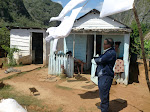




























































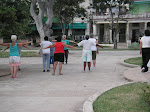
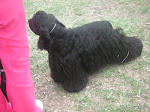
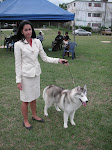


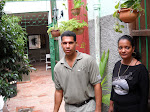





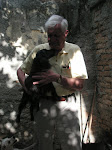



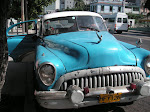

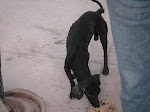



No comments:
Post a Comment